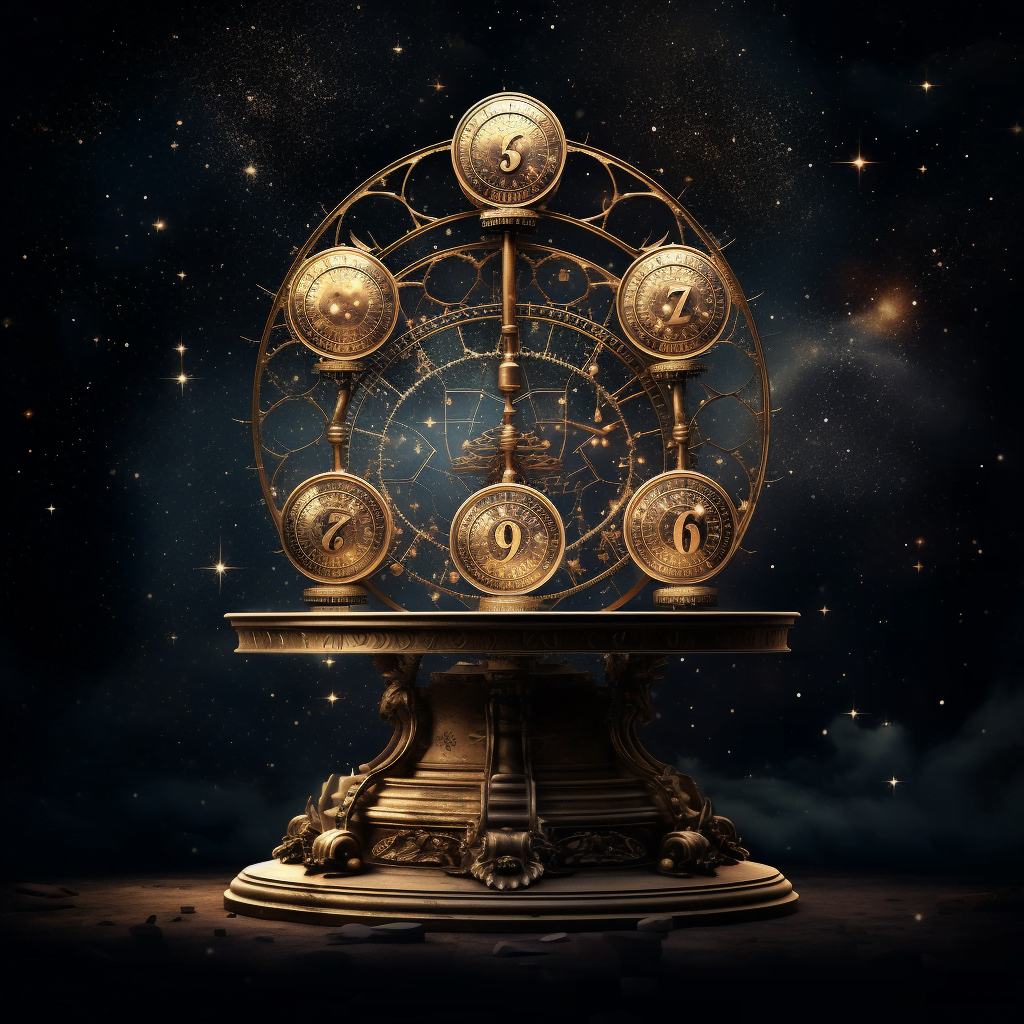Astrology has captivated human curiosity for centuries, drawing individuals into a realm of mystique and wonder. But the question remains: should we put our faith in astrology? As we navigate through this article, we will explore the origins of astrology, its impact on society, and the validity of its claims, helping you make an informed decision on whether to embrace the celestial teachings or dismiss them as mere superstition. So, prepare to embark on an enlightening journey through the cosmic realm of astrology.
Understanding Astrology
What is astrology?
Astrology is a system that seeks to understand and interpret the influence of celestial bodies on human behavior and events on Earth. It is based on the belief that there is a connection between the positions and movements of planets and stars and various aspects of human life. Astrology uses birth charts, which map the positions of celestial bodies at the time of a person’s birth, to provide insights into one’s personality traits, relationships, and potential life events.
How does astrology work?
Astrology operates on the principle that the planets and stars have an impact on our lives by transmitting certain energies or qualities. These energies are believed to influence different aspects of our behavior, character, and decision-making processes. Astrologers interpret the positions of celestial bodies and their interactions to make predictions and offer guidance regarding various aspects of life, such as career, love, and health.
The history of astrology
The practice of astrology dates back thousands of years. Originating from ancient civilizations such as Mesopotamia, Egypt, and Greece, astrology has evolved through different cultures and time periods. In ancient times, astrology played a significant role in shaping the beliefs and decisions of rulers and societies. It was often associated with astronomy, the study of celestial objects, and was seen as a valuable tool for understanding the world and predicting future events.
The Believers’ Perspective
Why do people believe in astrology?
Many people believe in astrology due to various reasons. One of the key factors is the desire for self-discovery and understanding. Astrology offers individuals a framework to explore their personality traits, strengths, and weaknesses, providing a sense of validation and insight into themselves. Additionally, astrology can serve as a tool for guidance and decision-making, helping individuals navigate challenges and uncertainties in their lives.
Personal experiences with astrology
Believers often have personal anecdotes and experiences that have solidified their faith in astrology. They may recall instances where astrological predictions or readings have appeared accurate, providing them with guidance or foresight into important life events. These personal experiences can create a deep sense of trust and belief in the power of astrology, reinforcing the idea that there is indeed a correlation between celestial movements and human experiences.
Connections to spirituality and self-discovery
For many believers, astrology is not just a pseudo-science but an integral part of their spiritual journey. Astrology offers a way to tap into a higher power or cosmic energy and connect with the universe in a meaningful way. It can provide a sense of purpose and belonging, as individuals believe that they are part of a greater cosmic plan. Additionally, astrology can foster self-reflection and personal growth, as it encourages individuals to explore their strengths, weaknesses, and life path.
The Skeptics’ View
Scientific skepticism
Skeptics view astrology as a pseudoscience that lacks empirical evidence and fails to meet scientific standards. They argue that astrology relies on subjective interpretations and vague predictions that can apply to almost anyone. Scientific skepticism demands that claims be supported by rigorous testing and reproducibility, which astrology often fails to meet. Skeptics emphasize the need for evidence-based explanations and hold the position that astrology is merely based on coincidence and personal bias.
Criticism of astrology
Critics of astrology raise several concerns. One of the main criticisms is that astrological predictions are often so vague and general that they can be interpreted to fit anyone’s life circumstances. This leads to a phenomenon known as the Barnum effect, where individuals tend to perceive generalized statements as highly accurate and personally significant. Critics argue that astrology’s reliance on such broad statements undermines its credibility as a scientific or reliable predictive tool.
Determinism vs free will argument
The skeptics’ view often revolves around the philosophical debate of determinism versus free will. Some argue that astrology promotes a deterministic worldview where an individual’s life is predetermined by their birth chart, with little room for personal agency or the ability to change their circumstances. Skeptics maintain that humans have the capacity to shape their own destinies through conscious choices, personal growth, and external factors unrelated to celestial movements.
Astrology and Personality Traits
The Zodiac signs and personality traits
Astrology categorizes individuals into twelve Zodiac signs based on their birthdate. Each sign is associated with specific characteristics and traits that are believed to shape a person’s personality. For example, Aries is often associated with qualities like assertiveness and leadership, while Taurus is associated with stability and practicality. These associations provide individuals with a sense of identity and help them understand themselves and others in a unique way.
How accurate are astrological predictions?
The accuracy of astrological predictions is a topic of much debate. While some believers attribute high accuracy to astrological readings and predictions, skeptics argue that any accuracy observed is likely due to chance or subjective interpretation. Studies examining the accuracy of astrological predictions have generally failed to provide conclusive evidence for astrology’s effectiveness in predicting specific outcomes or events. Critics argue that astrology’s allure lies in its ability to create a sense of coherence and meaning amidst the complexity of life.
Barnum effect and subjective validation
One psychological phenomenon that may help explain astrology’s appeal is the Barnum effect. This effect refers to the tendency for individuals to believe personalized, vague statements as highly accurate and applicable to themselves, despite these statements being applicable to a wide range of people. Astrology’s general and ambiguous predictions often tap into individuals’ desire for affirmation and validation, leading them to interpret statements in a way that aligns with their own experiences, confirming their belief in astrology.
Psychological Aspects of Astrology
Psychological explanations for belief in astrology
Psychologists offer various explanations as to why people believe in astrology. One explanation is the human tendency to seek patterns and connections, even in random or unrelated events. Astrology provides a structure that organizes the chaos of life into a predictable system, offering a sense of order and control. Additionally, astrology satisfies the human need for meaning and purpose, providing individuals with a framework to understand themselves and their place in the world.
Astrology’s role in self-perception
Astrology plays a role in shaping individuals’ self-perception and identity. By associating themselves with particular Zodiac signs and their corresponding traits, individuals develop a sense of who they are and how they relate to others. This self-perception may influence their behavior, choices, and relationships. Astrology also offers a language to discuss personal qualities and tendencies, allowing individuals to better understand and communicate their traits to others.
Confirmation bias and subjective validation
Confirmation bias is another psychological concept relevant to astrology. This bias refers to the tendency for individuals to interpret and remember information that confirms their preexisting beliefs or expectations while disregarding contradictory evidence. In the context of astrology, individuals may selectively focus on instances where astrological predictions appeared accurate, reinforcing their belief in the system. Subjective validation further contributes to this bias, as individuals perceive statements as highly accurate and meaningful due to their inherent need for validation.
Astrology in Modern Society
Popularity and cultural influence
Astrology maintains a significant presence in modern society, with millions of individuals turning to it for guidance, entertainment, and self-reflection. Astrology’s popularity can be attributed to various factors, including the rise of online platforms and social media, which provide easy access to astrological content and communities. The desire for self-understanding and spirituality in a fast-paced and uncertain world also fuels astrology’s popularity, as it offers a sense of connection and guidance.
Astrology in the media and entertainment
Astrology permeates popular culture, with horoscopes appearing in newspapers, magazines, and online publications. Celebrities often openly discuss their astrological signs, further amplifying public interest. Furthermore, astrology has found a space in the entertainment industry, with movies, television shows, and books incorporating astrological themes and characters. This continued presence in mainstream media contributes to the cultural influence of astrology and its integration into daily life.
Astrology’s impact on decision-making
For some individuals, astrology plays a role in decision-making processes. It can offer guidance and insight into career choices, relationships, and life events. Believers may consult astrologers or read horoscopes to seek advice on important decisions, using astrology as an additional source of information and perspective. However, skeptics argue that relying solely on astrological guidance without considering other factors may limit individuals’ ability to make informed and critical decisions.
Astrology and Science
Scientific examination of astrology
Astrology has been subjected to scientific examination to determine its validity and accuracy. Numerous studies have been conducted over the years, but the results have largely failed to support astrology’s claims. The scientific community contends that astrology lacks a solid theoretical foundation, relies on generalizations, and lacks empirical evidence. Researchers argue that astrology’s reliance on subjective interpretations and the Barnum effect undermines its credibility as a scientifically valid practice.
Relationship with astronomy
While astrology and astronomy share a historical connection, the two fields have diverged significantly over time. Astronomy is a scientific discipline that focuses on the study of celestial objects and phenomena, utilizing rigorous scientific methods and empirical evidence. Conversely, astrology operates using a belief-based system and relies on subjective interpretations. While some astrologers may incorporate astronomical elements into their practice, the overall approach of astrology and astronomy differs substantially.
The lack of empirical evidence
One of the main criticisms directed at astrology is the absence of empirical evidence to support its claims. Empirical evidence requires observation, experimentation, and the ability to replicate results. Astrology’s reliance on interpretations and subjective experiences makes it challenging to subject astrological claims to scientific scrutiny. Critics argue that if astrology were a genuine scientific practice, it would have accumulated substantial empirical evidence over the centuries, which is not the case.
Astrology vs. Astronomy
Differentiating astrology from astronomy
Astrology and astronomy are often confused due to their similarities in terminology and historical roots. However, astrology and astronomy are fundamentally distinct disciplines. Astronomy is a scientific study that focuses on the observation, measurement, and understanding of celestial objects and their physical properties. It adheres to strict scientific principles and employs mathematical models to explain the workings of the universe. Astrology, on the other hand, is a belief system that interprets the positions of celestial bodies to make predictions and offer insights into human behavior and life events.
Objectivity vs subjectivity
The distinction between astrology and astronomy lies in their approaches to knowledge and understanding. Astronomy strives for objectivity, basing its conclusions on empirical evidence and rigorous methodology. Astrology, on the other hand, relies on subjective interpretation, personal beliefs, and intuitive judgment. The objective nature of astronomy allows it to constantly evolve and adapt to new discoveries, while astrology tends to remain fixed within its belief-based framework.
Astrology’s lack of predictive power
One of the key differences between astrology and astronomy is their predictive power. Astronomy utilizes scientific methods and mathematical models to make precise predictions and calculations about celestial events. In contrast, astrology’s predictions are often vague, open to interpretation, and fail to provide specific information. Astrology’s lack of consistent and accurate predictions undermines its claim as a reliable predictive tool, reinforcing skeptics’ views that astrology is based on subjective interpretations and general correlations rather than scientific principles.
Alternative Explanations
Psychological and sociological factors
Sociologists and psychologists propose alternative explanations for belief in astrology that do not rely on the assumption of celestial influence. Some argue that astrology fulfills the human need for structure, purpose, and understanding, offering individuals a coherent framework to navigate life’s complexities. The desire for a sense of control and guidance can lead individuals to seek solace in astrology, as it provides a seemingly logical system that connects various aspects of their lives.
Coincidence and confirmation bias
The skeptics argue that astrology’s apparent accuracy is often a result of coincidence and confirmation bias. Coincidences, where astrological predictions align with personal experiences or events, can create the illusion of validation and reinforce beliefs in astrology. Furthermore, confirmation bias contributes to individuals selectively noticing and remembering instances where astrological predictions appeared accurate, while disregarding contradictory evidence. These cognitive biases can explain why believers perceive astrology as accurate despite its lack of scientific support.
Alternative frameworks for understanding
Critics of astrology propose alternative frameworks for understanding human behavior and events. These frameworks include psychology, neurology, and social sciences. Rather than attributing personality traits and life events to celestial influences, these fields explore the complex interplay of genetics, upbringing, cultural factors, and personal choices. By focusing on evidence-based explanations rooted in scientific research, these alternative frameworks provide a more comprehensive understanding of human behavior and experiences.
The Personal Decision
Individual beliefs and perspectives
Ultimately, the decision to believe in astrology or dismiss it as mere superstition is a personal one. Believers find comfort, guidance, and meaning in astrology, while skeptics maintain a critical and evidence-based perspective. It is important to respect individual beliefs and understand that astrology holds different significance for each person. Recognizing that belief or disbelief in astrology is a personal choice fosters open-mindedness, empathy, and constructive dialogue between believers and skeptics.
The role of personal choice
Astrology, like numerous belief systems, provides individuals with a sense of identity, purpose, and guidance. However, it is crucial to acknowledge that personal choice plays a significant role in how astrology is incorporated into one’s life. Some individuals may find value in astrology as a tool for self-reflection, personal growth, or decision-making, while others may reject it based on scientific skepticism or personal beliefs. The decision to embrace or dismiss astrology ultimately lies within the realm of personal choice.
The potential benefits of astrology
While skeptics may question the validity of astrology, it is important to acknowledge that astrology holds potential benefits for believers. Astrology can serve as a tool for self-reflection, fostering a deeper understanding of one’s strengths, weaknesses, and potential life patterns. It can provide comfort, encouragement, and guidance during challenging times. Moreover, astrology can act as a catalyst for exploring spirituality and contemplating existential questions. By recognizing these potential benefits, skeptics can approach astrology with understanding and respect for its subjective significance to others.
In conclusion, astrology is a fascinating subject that has captivated millions of people worldwide. Understanding astrology requires grasping its historical roots, the perspectives of its believers and skeptics, its impact on personality traits and decision-making, and its relationship with science and alternative frameworks. Whether one chooses to believe in astrology or not, it is essential to approach the topic with an open mind, recognize individual perspectives, and appreciate the potential benefits astrology can bring to believers.


